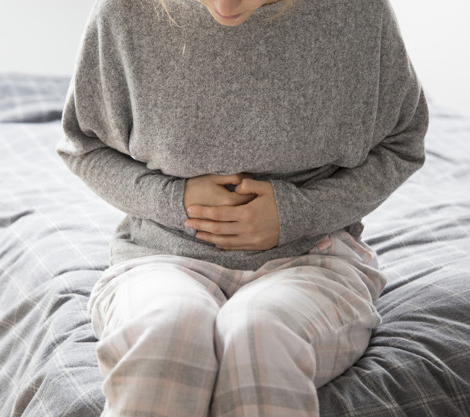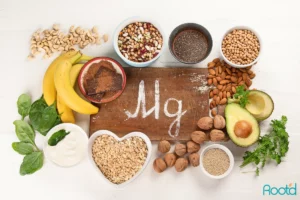PCOD / PCOS
What is PCOD / PCOS
Polycystic ovarian syndrome or disease (PCOS/PCOD) is a hormone condition that affects women in their reproductive age. PCOS is a common health disorder that affects adolescents and young women. PCOD strikes generally at an early age, thus, a generous number of youthful grown-ups experience this issue. This is a typical endocrine issue of obscure etiology, influencing 5-10% of ladies of conceptive age. The normal age bunch experiencing PCOD fluctuates somewhere in the range of 18 and 45 years. It is significant for the adolescent to comprehend this illness at its beginning, alongside the causes and suggestions later on. Polycystic ovarian syndrome is characterized by the breakdown of reproductive hormones in women of childbearing age. In addition to the havoc in female hormonal regulation, ovaries release excessive levels of androgen (male hormones).
Need to consult for PCOS/PCOD Management?
Quickly Book an Appointment.

Causes For PCOD
There are not any certain causes of PCOS, however, the contributing factors include:
- Excess androgen: Overproduction of androgen by ovaries causes may lead to hirsutism and acne.
- Excess production of insulin: Insulin hormone controls the blood sugar levels in the human body. When human cells become resistant to the action of insulin, the blood sugar level increases. As a result, the body produces an more than insulin to regulate this increased blood glucose level. Excessive insulin production successively increases the assembly of androgens which are the male hormones, otherwise very less in females. Increased androgen production causes difficulty with ovulation.
- Heredity: Certain genetic correlations may exist with PCOS in women.
- Presence of low-grade inflammation: Women with PCOS experience a low-grade inflammation that may stimulate polycystic ovaries to produce androgens.
The treatment for PCOD problem and effective diet for PCOD patients are essential considerations. Managing PCOD typically involves lifestyle modifications, medication, and weight management. A balanced diet for PCOD patients should prioritize whole grains, lean proteins, and low glycemic index foods to control insulin levels. It’s crucial for PCOD patients to work closely with healthcare professionals to develop a personalized treatment plan and dietary strategy to address their unique needs.
Manifestation of PCOD
- Irregular periods – A lack of ovulation prevents the uterine lining from shedding every month. Some women with PCOS get fewer than eight periods a year.
- Heavy bleeding – The uterine lining builds up for a longer period, so the periods you do get can be heavier than normal.
- Hair growth – More than 70 percent of women with this condition grow hair on their face and body — including on their back, belly, and chest. Excess hair growth is called hirsutism.
- Acne – Male hormones can make the skin oilier than usual and cause breakouts on areas like the face, chest, and upper back.
- Weight gain – Up to 80 percent of women with PCOS are overweight or obese.
- Male-pattern baldness – Hair on the scalp gets thinner and fall out.
- Darkening of the skin – Dark patches of skin can form in body creases like those on the neck, in the groin, and under the breasts.
- Headaches – Hormone changes can trigger headaches in some women.
If you’re facing any of these, do not waste your time. Along with medications, you need to maintain a proper lifestyle. With a PCOD/PCOS diet plan, it becomes easy to manage the symptoms of this condition.
You Can Have One Or These Side Effects
An individual might be lean or have clear skin yet at the same time experience the ill effects of PCOD. The primary pathology behind PCOD is Insulin Resistance and hyperinsulinemia. Insulin manages sugar in the body. Insulin Resistance implies the failure of cells to react to the activity of insulin in shipping glucose (sugar) from the circulation system into muscle and different tissues. Subsequently, the pancreas creates more insulin to battle the high sugars.
Possible Complications of PCOD
Some of the possible complications of PCOS are:
- Abnormal uterine bleeding
- Psychological disorders like depression and eating disorders
- Endometrial cancer
- Pregnancy-induced or Gestational diabetes and/or hypertension
- Infertility
- Metabolic syndrome
- Miscarriage or premature birth
Patients with PCOS who become pregnant are at elevated risk for perinatal entanglements, such as gestational diabetes. Also, they increase the long-term risk of endometrial diseases. Different complexities include elevated levels of cholesterol, hypertension, and even bosom disease.
Treatment of PCOD
Treatment for PCOD usually starts with PCOD management which includes lifestyle changes like weight loss, diet, and exercise. Losing only 5 to 10% of your body weight will help control your menstrual cycle and improve the symptoms of PCOS. Weight loss can also raise cholesterol levels, lower insulin levels and reduce the risk of heart disease and diabetes.
Consequently, PCOD patients must exercise consistently and keep up a sound eating regimen. The eating routine should be low on sugars and starches. High protein and high fiber admission are suggested for patients experiencing PCOD.
The rest of the treatment should be possible dependent on the side effects.
Here are the various modalities:
- Medications are accessible to treat insulin obstruction and equilibrium hormones to address periods.
- Skin medicines are accessible for skin inflammation, pigmentation, and hair development.
- A few cases may require Second-line treatment, for example, aromatase inhibitors, laparoscopic medical procedure, or ovarian penetrating.
- Juvenile patients are treated with hormones and metformin to regularize the periods and insulin obstruction.
It is to be noticed that no prescription or line of treatment will help without a legitimate way of life changes.
PCOD and Pregnancy
Getting pregnant isn’t an issue if PCOD is leveled out. Nonetheless, helpless control of the illness would require prescriptions or Assisted conceptive innovation (ART) with barrenness specialists feeling. It is additionally to be noticed that individuals with PCOD have a restricted ovarian limit to create sound eggs. Along these lines, they are encouraged to decide on an early pregnancy on the off chance that they need kids as propelling age influences the nature of the eggs antagonistically.
Food & Wellness | PCOD Management
The diet plan is made so as to ensure that the above medical conditions improve over the plan period. We discuss with you your food preference, dietary habits, lifestyle, exercise pattern, sleep cycle & review your medical reports , travel frequency, cooking restrictions, food allergies etc. etc.
Basis the above information, the detailed diet plan is crafted for every day of the plan period. We provide 3 weeks diet plan at the start and then new plans are given every2-3 weeks thereafter.
The diet recommendations are flexible and provide enough variety of food options so that it is monotonous and you are able to follow and embrace it.
Once the program ends, a maintenance plan is suggested so that you are able to use the learning during the plan period to remain healthy.
The entire focus is on providing you a well-balanced diet plan in line with the medical condition, reasonable exercise, proper sleep, good hydration. Moreover, we cater to clients all over in Delhi, Mumbai, Kolkata, Bangalore, and outside India (Dubai a Singapore). Since we provide online consultation, location is not going to be a barrier!

Let's get started with treating your condition...
At Food & Wellness we believe that every individual is different and needs special attention. We adapt our programme to your existing lifestyle and try not to change anything drastically so you can easily transition. Over a period of time we ensure results and help you restore your health.
PCOD / PCOS Articles

Magnesium & Fertility: Why This Mighty Mineral Matters for Reproductive Health
Magnesium is a fertility powerhouse—balancing hormones, boosting ovulation, and improving sperm health. Yet, 50% of adults are deficient! Discover how this “master mineral” enhances conception, top food sources, and smart supplementation tips backed by the latest research.

Can PCOS Cause a Fatty Liver?
Polycystic Ovary Syndrome (PCOS) is a common hormonal disorder affecting women of reproductive age. It is characterized by irregular menstruation, hormonal imbalances, and ovarian cysts. Along with its well-known effects on fertility and metabolism, a report by NCBI has suggested a potential link between PCOS and non-alcoholic fatty liver disease (NAFLD). Understanding PCOS and its

Endometriosis: Diet and Lifestyle Strategies for Managing Symptoms
Endometriosis is a chronic condition that affects millions of women worldwide, characterized by the growth of endometrial-like tissue outside the uterus. This condition can lead to severe pain, inflammation, and even infertility.
